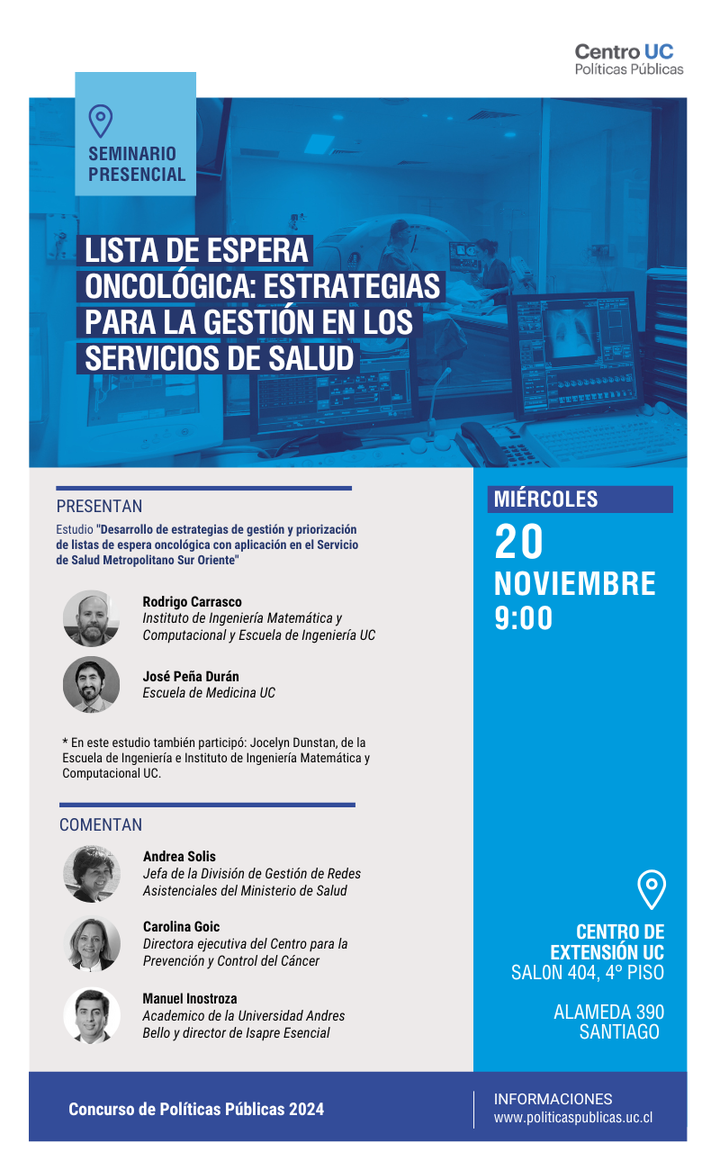
Abstract
The presentation focuses on strategies to improve the management of oncology waitlists in health services, emphasizing the critical challenges and opportunities identified in current systems. It begins by outlining the complexity of oncology care as a networked process involving multiple steps, from initial consultations to surgeries and therapies. Key issues include fragmented and limited waitlist monitoring, inequitable prioritization for non-GES cancers, inefficient resource allocation, and the lack of transparent prioritization criteria. The project integrates expertise from engineering, medicine, and artificial intelligence to develop data-driven strategies for process standardization, automated analysis, and decision-making support. Through collaboration with the Hospital Metropolitano Eloísa Díaz, the team identified bottlenecks, automated data workflows, and proposed a preliminary prioritization model, significantly reducing processing times and improving patient management capacity. The proposed public policy recommendations aim to address systemic barriers to effective oncology waitlist management. These include the standardization and digitalization of clinical data processes, investment in natural language processing (NLP) technology to analyze unstructured data, and the development of mathematical optimization models to enhance resource use and patient prioritization. Additionally, the creation of a National Cancer Database is suggested to centralize patient data and enable broader application of these tools across the healthcare system. The presentation highlights the importance of interdisciplinary collaboration, transparent processes, and the integration of technology with clinical knowledge to ensure sustainable and effective improvements in oncology care.